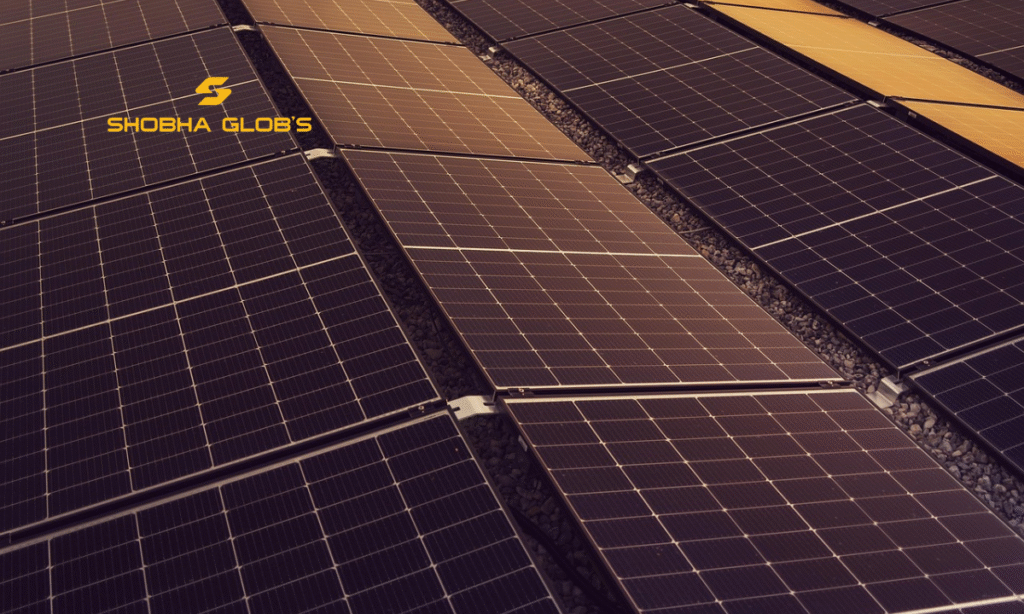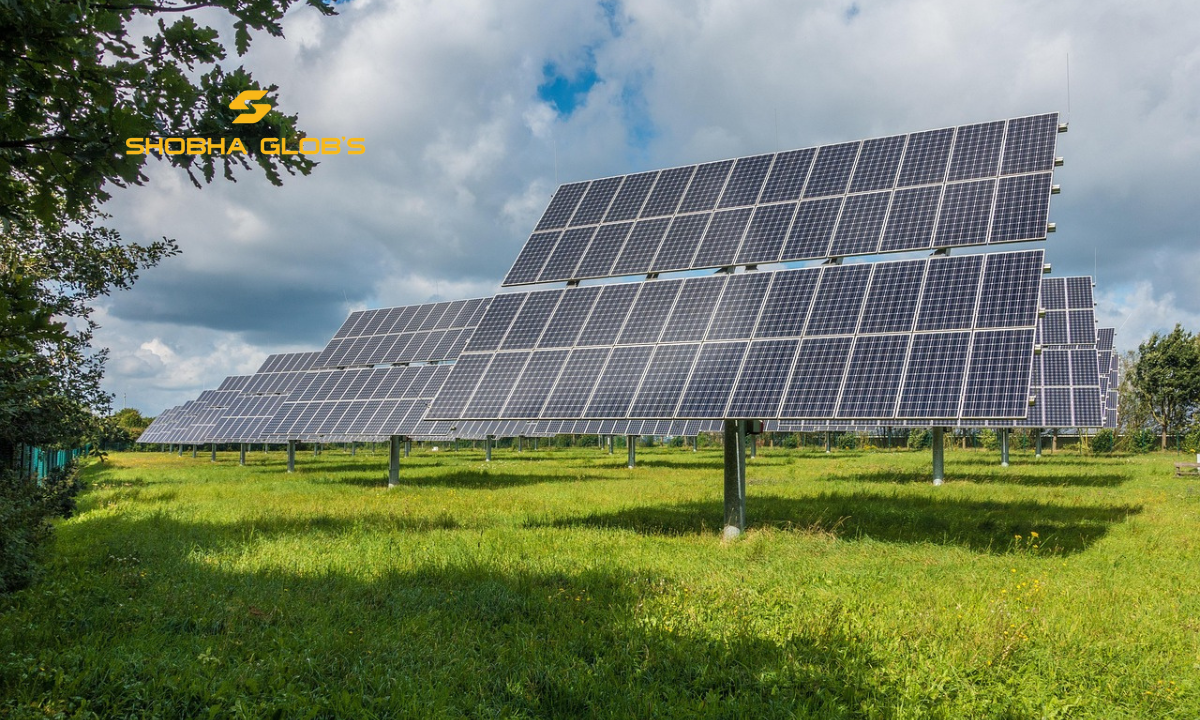Solar EPC services are at the heart of India’s renewable energy revolution, and understanding their role, scope, and potential is crucial for any stakeholder in this field.
In this blog, we will explore the details of Solar EPC, from definition to market opportunity, while keeping our discussion practical and forward-looking. We will also look at how a Solar EPC Company in India can seize emerging opportunities across sectors.
What is Solar EPC?

EPC stands for Engineering, Procurement, and Construction.
- In the solar domain, Solar EPC solutions mean a single entity takes responsibility for designing the solar plant (engineering), sourcing all materials (procurement), and executing the installation (construction).
- A Solar EPC contractor thus offers end-to-end services: site survey, system design, civil works, electrical integration, grid interconnection, testing, and handover.
- The client does not need to manage multiple vendors; the EPC contractor is the single point of accountability.
Because of this integrated approach, risks are better managed, costs can be optimized, and schedule adherence improves.
Importance of Solar EPC Services in India
India’s solar journey is accelerating rapidly. In 2024, India added about 30.7 GW of new solar capacity, more than double the additions in 2023.
At the same time, globally, the solar EPC market is projected to grow at a CAGR of around 8% over the coming decade.
Given this backdrop, Solar EPC services are not a niche offering; they are central to enabling large-scale, efficient, and quality solar deployment across India, spanning rooftop, ground-mounted, hybrid, and utility projects.
Key components of Solar EPC solutions
To clarify what exactly EPC contractors deliver, here’s a breakdown:
| Phase | Core Activities | Key Risks & Considerations |
| Engineering (Design and Planning) | Feasibility, energy yield modeling, structural & electrical design, civil layout | Site constraints, shading, soil conditions, and grid connectivity |
| Procurement | Sourcing PV modules, inverters, mounting systems, cables, and transformers | Quality assurance, supplier reliability, and logistics delays |
| Construction & Commissioning | Civil works, module installation, wiring, earthing, grid interconnection, testing | Safety, workmanship, compliance with standards, and environmental factors |
A professional Solar EPC company will also often handle permits, land acquisition assistance, stakeholder management, and even operation & maintenance (O&M) support.
Opportunities in India’s Solar EPC market
1. Utility-scale solar parks
Large ground-mounted parks remain a major focus. India’s utility solar PV EPC market is expected to grow at a 6.8% CAGR in the coming years.
2. Rooftop & distributed solar
Commercial, industrial, and residential rooftops are gaining traction. As power costs rise and sustainability targets become stricter, rooftop solar installations become compelling.
3. Hybrid systems & energy storage
Solar + storage, or solar + wind hybrids, are emerging as high-value projects. EPC firms that can integrate battery storage with solar systems will be better positioned for future demand.
4. Off‐grid & microgrid solutions
Rural electrification and standalone solar + battery systems in remote areas are a growing niche.
5. Innovation & digitalization
Use of AI, IoT, predictive maintenance, drone-based inspections, and advanced project management tools can provide differentiation.
6. Policy & financing tailwinds
Government schemes, tenders, incentives (capital subsidies, viability gap funding), and FDI flows into renewable energy strengthen project pipelines.
With careful market entry, a Solar EPC Company in India can target these segments, leveraging domain expertise and scale.
Challenges faced by Solar EPC contractors
- Managing complex supply chains and fluctuations in component prices
- Ensuring strict quality control under tight timelines
- Navigating land acquisition, clearances, and local regulations
- Accessing low-cost finance and handling payment delays
- Dealing with grid integration, variability, and intermittency
Successful contractors often mitigate these via strategic partnerships, robust quality systems, and risk-sharing contracts.
How to choose a Solar EPC company or contractor
Here are some practical tips:
- Track record & references; past projects, capacity installed
- Technical capability: In-house design, simulation, and integration skills
- Supply chain strength: Strong vendor relationships for modules, inverters, and mounting
- Financial stability; Ability to mobilize capital during project execution
- Local presence and field teams, for execution speed and proximity
- After-sales & O&M offerings: useful for long-term client confidence
Many leading names like Sterling & Wilson, Tata Power Solar, Mahindra Susten, Jakson Group, Shobha Globs, etc. have proven their credentials across India.
Tips for new Solar EPC entrants
- Start with smaller rooftop or C&I projects before scaling to large parks
- Build local vendor networks and logistics capability
- Adopt digital project management & monitoring tools early
- Focus on quality, safety, and documentation
- Explore strategic alliances (finance partners, module makers)
- Offer integrated services, e.g. O&M, remote monitoring, retrofits
Final thoughts
India’s renewable energy targets, paired with consistent policy support and private investment, make the landscape ripe for Solar EPC growth. We firmly believe that the path forward lies through innovation, execution excellence, and smart risk management.
As we at Shobha Globs look ahead, we see ample opportunity: aligning with or becoming a Solar EPC Company in India can be transformative, not just for energy transition, but for sustainable business growth.
If you are curious about how to explore or partner in this space, reach out. The next breakthrough could start with your idea.
Frequently Asked Questions (FAQs)
Q1. What is the difference between an EPC contractor and a developer?
An EPC contractor handles design, procurement, and construction. A developer may also include project origination, financing, land acquisition, and operation.
Q2. How long does a typical solar EPC project take?
For a utility-scale project, 9–18 months is common, depending on size, site, clearances, and grid works.
Q3. Does the Solar EPC company also handle O&M?
Many EPC companies offer Operation & Maintenance as an optional or bundled service.
Q4. Can I approach a Solar EPC Company in India for small rooftop projects?
Yes, many EPC firms have divisions focused on commercial/industrial (C&I) or residential rooftop installations.

